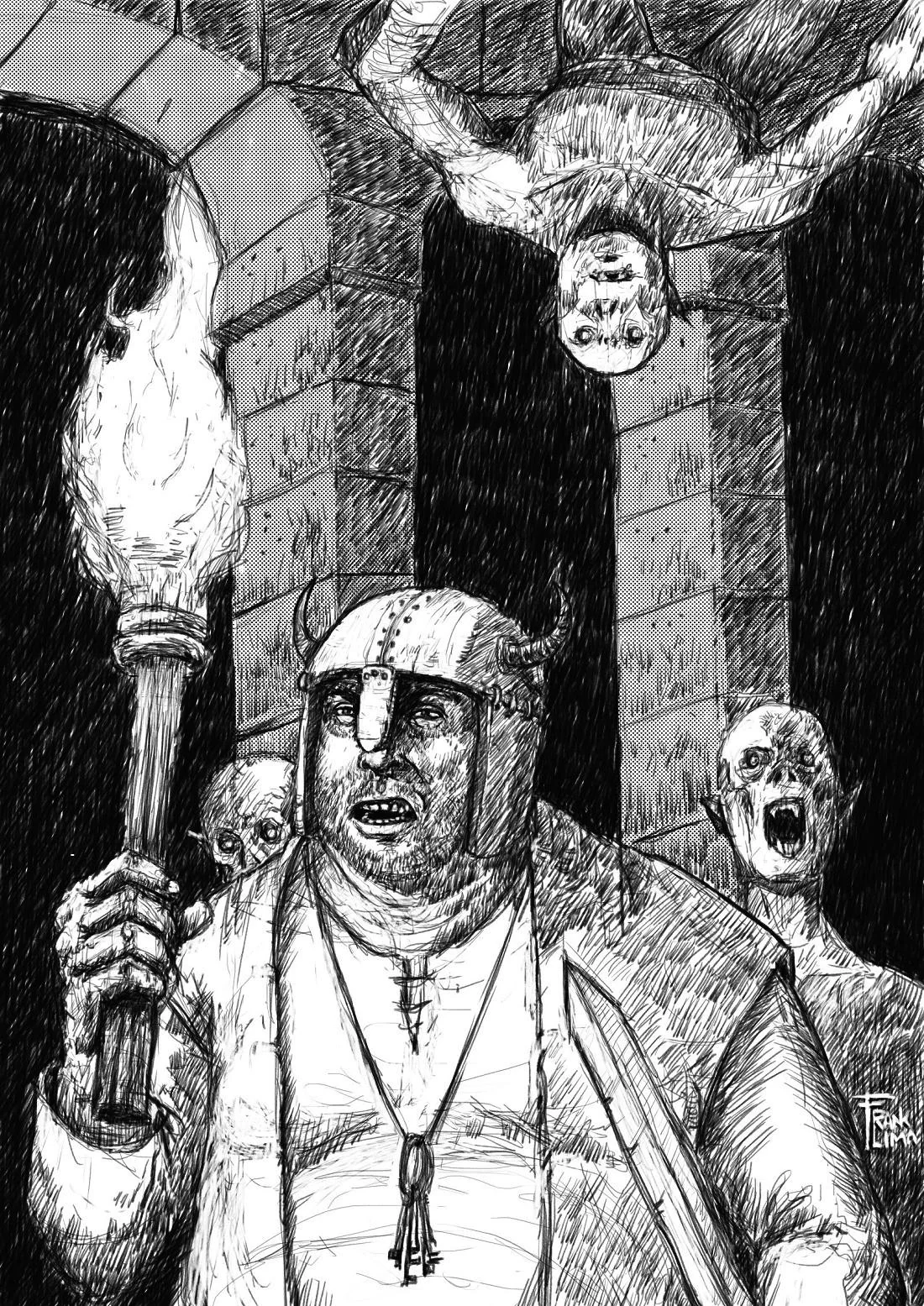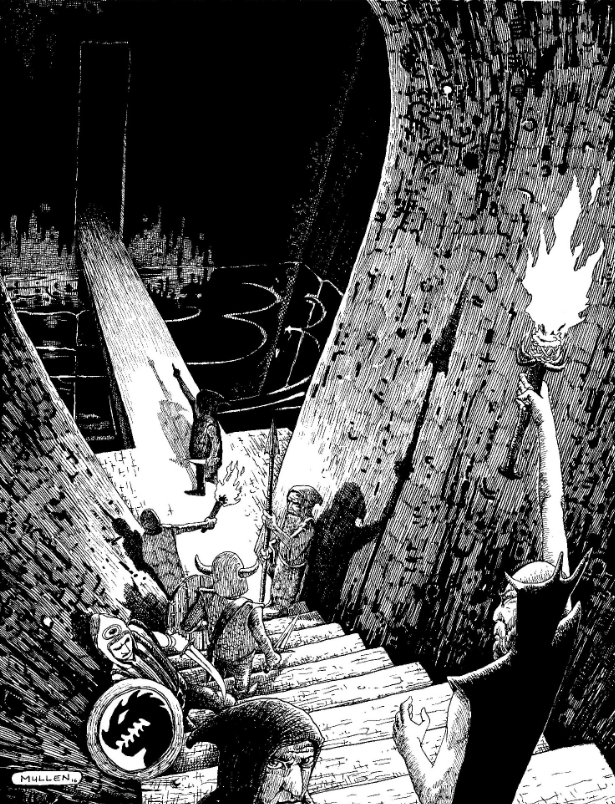Delving Rules

Turn Order
Lumina is played in turn order right from the start. The player left of the GM always goes first. If the player is unsure what to do in that moment, skip that player and come back after everyone else declares actions.
Delve Actions
Just like normal, every character can do an action and a movement or 2 movements. While delving, characters can take actions that might include:
- Investigating an room/area.
- Prying a gem from a statue.
- Sneaking up on a slumbering dragon.
- Tapping on a suspicious wall to check for a hidden door.
- Rushing through two rooms/areas in the dungeon.
Time
Time passes in the game world at the same pace it's passing in the real world. One minute or hour of game time is equal to one minute or hour in real time. This matters for tracking light sources, because most light sources only last for 1 hour of real time.
The group must enter and exit the dungeon on the same day. Groups cannot stay in the dungeon overnight unless a "safe zone" has been established by NPC patrons. See also the terms of the Adventurer's Guild.
Rival adventurers can on things in the dungeon (treasures, magic, secret areas etc.) before their counterparts. Groups will gain levels at different rates. Some may delve deeper into the dungeon as soon as possible, while others will wait until they are better prepared.
If you can't track real time in your game, assume one hour is equal to 10 rounds.
Cut to the chase
Every moment in the game doesn't have to be accounted for in real time. For example, if the characters want to spend 10 minutes examining a room from top to bottom, the GM and players can agree that time passes.
When time passes, the GM and players move any timers down by that amount.
Light
Most light sources last for up to an hour of real time and illuminate a limited area.
New light sources lit while another is already active "ride along" on the current timer. GM disc.

Vision
- If you are holding a light source (or directly aided by another with a light source), you are in "bright light" and can do any task without penalty, but you are also clearly visible. Hiding is impossible.
- If someone else is holding a light source, you are considered to be in "dim light". Any visually dependent roll (picking a lock, casting a spell) is hard.
- If in complete darkness, the delvers will be surprised by all encounters, spring all traps and cannot map. Roll a WIL Danger Roll or gain one of the Delving in the Dark conditions:
| d6 | Delving in the Dark |
|---|---|
| 1 | Fumble: The player does everything with eyes closed. |
| 2 | Frozen solid: Cannot move or act this TURN |
| 3 | Sentient Flame: You MUST name any flame you light. You speak to them. They keep watch over you or betray you. |
| 4 | Extreme Mydriasis: Your pupils are permanently dilated. Gain additional details to actions searching. Easily blinded. |
| 5 | Vampiric skin: Each time you roll this, go down to the next lightest colour from Caucasian, Pale, Albino, to Translucent. |
| 6 | Mad: Gain the Mad condition. |
Random Encounters
Random encounters are a way to keep the pressure up. With every major action, the dungeon may wake.
How Often?
The GM checks for random encounters during exploration rounds (not combat) based on the environment's danger level.
- Unsafe. Check every 3 rounds.
- Risky. Check every 2 rounds.
- Deadly. Check every round.
To check for a random encounter, the GM rolls 1d6. An encounter occurs on a result of 1. The GM might also check for an encounter if the characters create a loud disturbance.
For overland travel, check for random encounters based on hours in place of rounds.
Starting Distance
If one or more wandering creatures appear, roll 1d6 for their distance from the group.
| d6 | Starting Distance |
|---|---|
| 1 | Close |
| 2-4 | Near |
| 5-6 | Far |
What is it doing?
When the characters encounter new creatures, roll to determine the creatures' current activity. This might impact how likely they are to notice the characters